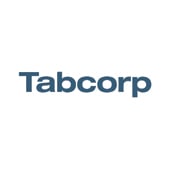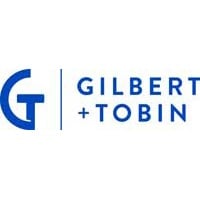

Group general counsel and member of the executive committee | Tabcorp Holdings





Patrick McGlinchey
Group general counsel and member of the executive committee | Tabcorp Holdings
Chief legal and risk officer | The Lottery Corporation
Chief Legal and Risk Officer and non executive director | Tabcorp Holdings
Regional general counsel, Asia Pacific | LafargeHolcim
Patrick McGlinchey assumed the role of regional general counsel Asia Pacific at LafargeHolcim in February 2014. With overall responsibility for all legal and governance matters in Asia Pacific, McGlinchey leads...
I recently changed roles, so most of the matters relate to my time at Lafarge Holcim. Many of the matters are confidential but to summarise these include appealing a A$500m penalty for alleged cartel infringements in the Supreme Court of India, leading a complex arbitration in Singapore (involving Filipino matters), and complex litigation in the Philippines.
At Tabcorp it has been a busy few months since my commencement including defending a complex matter in the Supreme Court of Queensland as well as multiple complex regulatory matters relating to the integration of Tatts following the merger with Tabcorp in 2018.
It is interesting that we are still asking this question in such an advanced and mature legal market such as Australia. My advice is to ensure that a business and commercial mindset becomes part of your DNA as an in-house lawyer.
It’s an extension of the old adage of “walking a mile in someone else’s shoes”. Lawyers tend to struggle beyond the technical, and in my experience, the best thing they can do is get seconded to a business unit for 12 months. This mindset helps develop a rigorous business acumen.
It is refreshing for an in-house lawyer to approach issues from a commercial mindset – which secondments help foster. Of course, you still need to maintain your integrity and ensure that commercial conduct is achieved ethically and in the best interests of the organisation.
As we continue the integration of Tabcorp and Tatts Group, we have been evaluating our existing infrastructure, systems and processes.
Currently, we use an in-house bespoke contract and obligations management system, as well as some other off the shelf tools. We are currently in the process of recruiting a legal and regulatory operations director. This appointment will assist us in sourcing class-leading technology, streamline workflows and ensure we are at the forefront of current legal trends.
Tabcorp operates in a highly regulated and complex environment and is subject to six different state regulations (and licensing regimes) as well as dealing with Federal regulators. Recently, we have been preparing for the introduction of the NCPF laws as well as recent submissions to the Black Economy Taskforce.
It’s interesting to be focused on Australia now after seven years mainly working in Asia. I’m surprised to observe some barristers and partners with “old school” we know best approach. I work well with external counsel and senior counsel who are highly collaborative. It’s important to strike the right working rhythm early and take action if the firms or individuals are not delivering the right outcomes.
Spend some time working in the business, get some P&L experience and then reflect on the issues from a commercial perspective. Truly understand the commercial aspects of the prospective business area (by doing this role), as this will help you become a far more effective lawyer, as the answer ultimately lies in the commercial sphere. If you get this understanding right, you can apply your legal and management acumen.
“What do we really stand for?”.
That’s a question I’ve been asking myself and my new team, given I’ve joined my organisation recently. I’ve been asking that question in the context of landing an overall Office of Group General Counsel (GGC) strategy. So then I’ve asked the team, where is our strategy articulated, and are we really all clear on that?
Of course the basics or a foundation for any high performing GGC team are a given. These include acting with integrity; thinking commercially; being bold; challenging the status quo and asking not “can we do this” but “should we?”.
But the blueprint needs to go further than this to help the team understand what it means for how we work and deliver services every day but also be flexible enough for the future. A good GGC strategy sets out with some clarity not just the GGC purpose and vision but what you really want to achieve as a team and the method, and philosophical approach to achieve it. To that end, I am a big believer in the benefit of a clear, crisp and focused strategy for GGC teams all expressed on one page.
Recently, in discussion with other general counsel, I’ve been surprised that many either don’t have them, don’t see the need for one or “have it in their heads”. I strongly suggest that those dissenters reconsider.
A good strategy on a page is powerful if it becomes an ongoing platform to drive values, outcomes, behaviours and approaches to work. It should set the scene, define clearly what we stand for, and be a powerful tool to influence priorities; legal risk appetite; resourcing models; legal and regulatory service delivery models; client delivery and value expectations, and structure and people orientations.
So, in my view the GGC strategy needs to be practical, anchored in the “now” but also aspirational to drive constructive thinking around the longer term particularly as organisational, legal and regulatory complexity increases. I’ve been struck by how galvanising our GGC strategy discussions have been recently and the leadership team has already seen the benefit that this “artefact” has in driving strategic thinking, collaboration and a results oriented culture. If you haven’t taken the time to work on your GGC strategy then now is the time!
The GGC strategy then becomes the anchor for all the other GGC initiatives in an ever-increasing complex business environment. It seems such a simple (and also simplistic) reflection but a good GGC strategy can be easily undervalued or overlooked thereby, creating a significant opportunity cost for your teams and organisation.